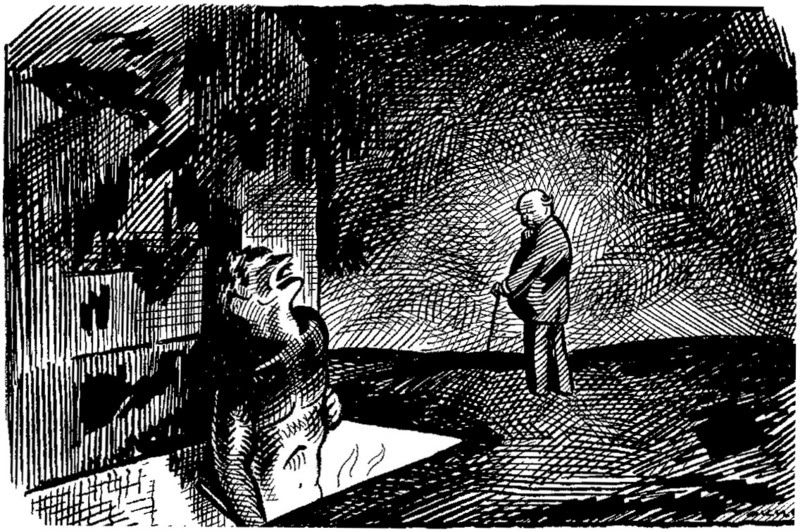Yesterday I posted an article about Art Young, faith, and humor. As I mentioned, the article was originally commissioned for Ryan Standfest’s upcoming anthology on black humor.
Unfortunately, Ryan decided he couldn’t use my essay in his book. I found his reasons, and his responses, interesting and thoughtful. I asked Ryan if he’d let me reprint his email discussion of the essay, of humor, and of Art Young, and he very gracefully agreed. Below are his most substantial emails to me on the subject. (I have not included my responses, which are unwieldy since they include revised versions of the essay. Instead I figured I could talk about our differences a little in comments if there seems to be an interest.)
____________________
Hello Noah–
Yes, I’ve read your article, and I’ve actually been wrestling with the direction it took. I must confess that as an atheist I am struggling with the connection you propose between faith and humor. The confusion for me lay primarily in the use of language, I think, that makes use of the concept of “faith” or “belief” in relation to theological matters, rather than finding a more secular use of such concepts in power structures– not necessarily in religion (or the concept of “god,” “evil” or “heaven.”)
At the start of the piece, you had me hooked with regard to the containment or reproach of power and power structures through the use of humor. I think the article is VERY STRONG up until the paragraph that begins with “Yet it wouldn’t be correct to say that Young eschewed faith.” It was with your juxtaposition of the words of the apostle Paul with an image of Young’s, where the piece heads into a territory that I find unconvincing. The juxtaposition feels a bit like an imposition to me, in order to arrive at a final paragraph that states positions that I am not sure I entirely agree with, nor see any evidence to support.
I think it is fair to say that humor may not prevent or deter tyranny (I am intentionally avoiding an abstract and far-ranging concept such as “evil” here), but it certainly puts it and abusive power structures into a context that weakens their position by means of the altering of perceptions. The statement “Humor is not anarchic liberation,” is of course a subjective and highly individualistic reading of humor that is contrary to what many others believe humor to be (see: Dada, Surrealism, the Marx Brothers). Alas, I am not convinced by the notion that you cannot have mockery without believing in something that is not mocked. I think a humorist or a satirist is perfectly capable of mocking something that he or she does not believe in and may in fact not have anything in mind to put in its place. The essence of Black Humor certainly brushes against the nihilistic concept that almost all power structures cannot be believed-in, or accepted. This is what makes it so black.


